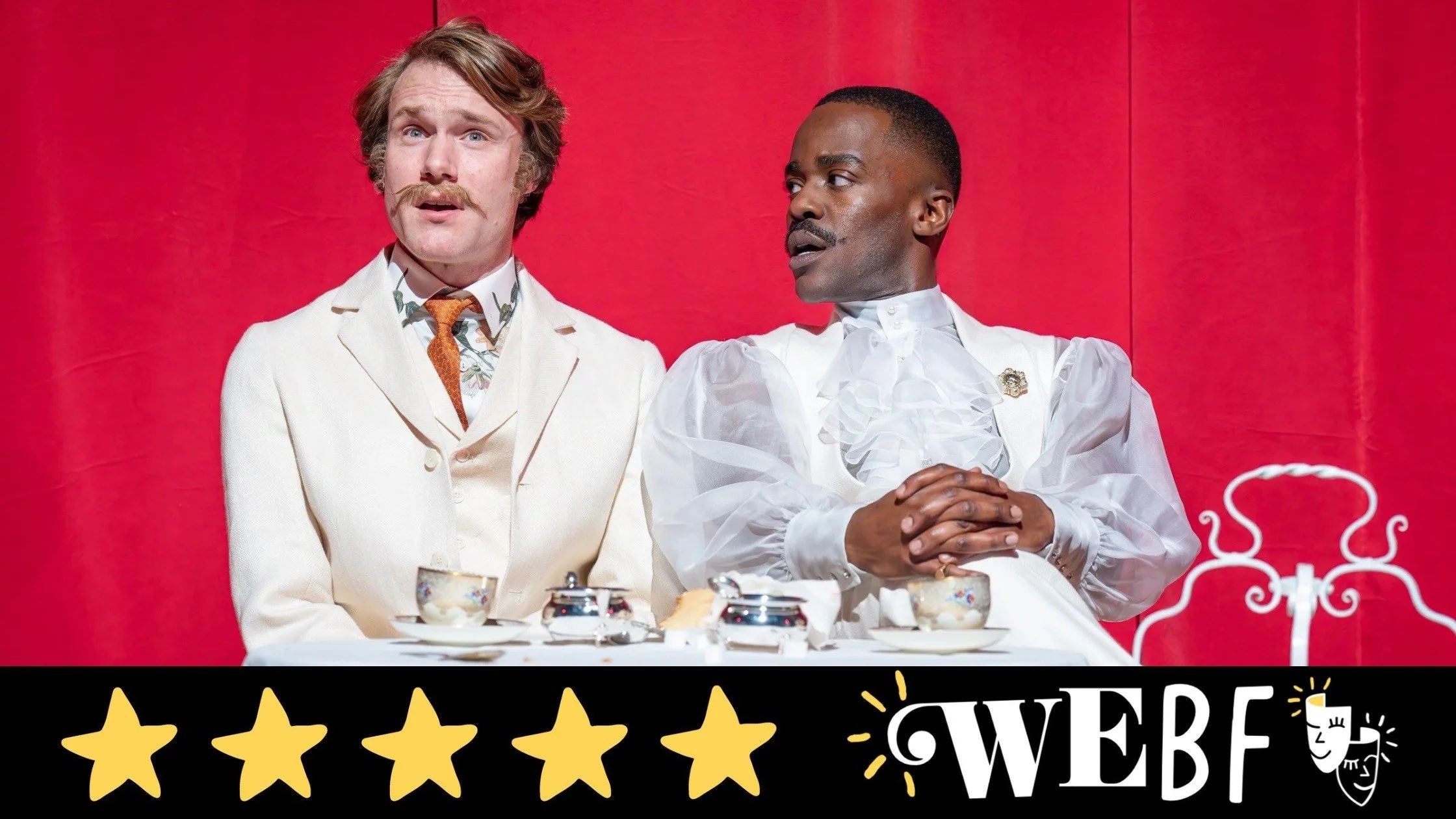Review: THE IMPORTANCE OF BEING EARNEST, National Theatre
Photo credit: Marc Brenner
It’s always a delight to re-encounter The Importance of Being Earnest, Wilde’s last and most perfect play, especially for those of us who have grown to know and love it as we discover ever more of the layers of meaning it contains. There is no doubt in this NT production about the intended definition of bunburying or even being earnest (code for Uranist); we are in an overt version of the queer and implied gender-fluid world that Oscar Wilde could only hint at in the first production.
Director Max Webster has chosen to opt for the original four-act version of the play, with an interval after Act Two. As well as restoring some choice otherwise-lost one-liners, this has the effect of adding detail to our understanding of these characters, who may seem light and affected but are full of hidden depths. Of course in Wilde’s time, there was a “desire not to know,” as Sos Eltis explains in a helpful piece in the programme, explaining why the usual strategy was one of “coded references, linguistic playfulness and inferring what could not be stated directly…”
There is no hiding behind codes and not much recourse to inference in this production, although there is a great deal of playfulness. Wilde may have called the play “exquisitely trivial” but his life became much more serious when he was arrested and tried shortly after it opened.
The production’s confidence with the somewhat arch but sophisticated style is apparent from the opening: unexpected but a joyful start to an evening full of sly hints, not least the famous handbag hanging in front of the red velvet curtain and gold and white proscenium arch, not a framing device often seen at the Lyttelton.
Ncuti Gatwa is an eager, energetic Algernon, addressing the audience regularly and almost convincing us that it is the ladies in which he is interested. As Gwendolen, Ronkẹ Adékọluẹ́jọ́ is a delight, determined to get her way and regularly escaping the control of Lady Bracknell. Cecily is played by Eliza Scanlen with a girlish glee which proves irresistible to Algy.
The fourth member of the central quartet is Hugh Skinner’s Jack Worthing. This is a supremely masterly performance; every utterance given the proper Wildean emphasis, and not a word is lost in a production where the spoken word is paramount.
Around these central figures are others who make the most of whatever role they have been given. Chasuble and Prism can be caricatured but here, Amanda Lawrence’s weary but unfulfilled governess comes to life when she becomes entranced by Richard Cant’s sometimes rapacious Curate.
As two very different servants, Julian Bleach is always worth watching, especially his dusty old country retainer: a masterclass in how to make much out of a small part. Sharon D. Clarke as Lady Bracknell makes a series of striking entrances and commands the stage, even from a sitting position. She recreates the famous lines as if we are hearing them for the first time, and is the appropriately stern centre around which chaos swirls.
The production benefits enormously from Rae Smith’s sets and costumes, always in period but interspersed with surprises. As to the glorious finale, perhaps that should remain a surprise. Suffice to say that anyone seeing a pair of grand staircases in the final scene, and in panto season too, will know that they must be put to use.
A great production of an enduring play, and featuring a cast at the top of their game, this is not to be missed.
***** Five stars
Reviewed by: Chris Abbott


